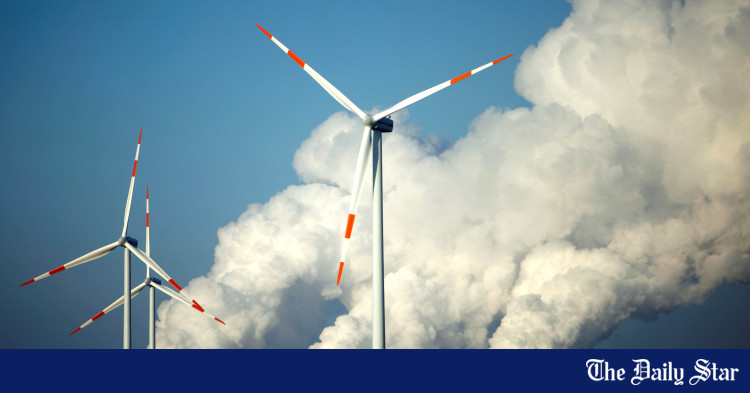The Bangladesh Climate Action Forum 2024 which recently concluded in Dhaka was a huge success and surpassed all expectations. Key to the event was the scale in terms of the number of delegates and the quality of the speakers; and the international element, with the event shining a light on Bangladesh and its efforts to take a leadership role on climate issues.
The event exemplifies the power of global collaboration in addressing pressing climate issues. Bringing together over 450 delegates from various sectors—government, industry, academia, and NGOs—this event fostered a platform for cross-sector dialogue. International stakeholders’ participation highlighted the climate crisis’s global nature, where local actions must align with global goals.
The forum enabled Bangladesh, one of the most climate-vulnerable countries, to build relationships with global leaders and access international expertise, technologies, and resources. The event showed that climate action cannot be siloed, rather partnerships across national and sectoral boundaries are required to develop sustainable strategies tailored to Bangladesh’s unique challenges.
At the forum, significant emphasis was placed on decarbonisation, particularly in renewable energy and industrial processes. The launch of the “Better Mills Initiative” and the OnetrueSOLar Fund reflects Bangladesh’s commitment to reducing its carbon footprint, especially in garment production, which is a major contributor to global emissions.
Presentations on solar rooftop system optimisation and thermal energy system optimisation showcased the potential of these technologies to revolutionise energy consumption in industrial settings. The push for energy usage reduction in manufacturing is vital not only for reducing emissions but also for positioning Bangladesh as a leader in sustainable production. By embracing these technologies, the country could attract more green investments and strengthen its global competitiveness in garment production since global fashion brands seek to green their supply chains.
Bangladesh also faces the dual challenge of increasing its energy supply while transitioning to renewable sources. With only two percent of its energy coming from renewables, the country is far behind global sustainability targets. Speakers at the forum, including government representatives and European Union delegates, stressed the critical need for Bangladesh to enhance its energy security in a way that is both sustainable and resilient to the effects of climate change.
The European Union’s pledge to mobilise up to 300 billion euros in investments by 2027 offers a lifeline for countries like Bangladesh to access much-needed resources for green energy projects. As Bangladesh continues to develop as a regional economic power, its ability to meet energy demands through renewable sources will not only mitigate environmental risks but also secure long-term economic growth.
One of the forum’s central themes was rethinking climate action as a business strategy, rather than a regulatory obligation. Delegates were encouraged to see sustainability as an opportunity for growth. A key point made at the event was that “cheap labour is no longer a competitive advantage.” Instead, meeting the sustainability targets set by international clients can differentiate Bangladeshi businesses in global markets. The apparel sector, a central plank of the nation’s economy, is particularly poised to benefit from sustainable production practices.
As global brands increasingly demand eco-friendly products, businesses that invest in sustainability will likely gain a competitive edge. This shift in perspective is crucial for Bangladesh’s long-term economic success, especially as the country strives to transition from being a low-cost manufacturing hub to a leader in sustainable innovation.
Sure, investing in climate action comes at a cost. There is no sugar-coating that, and how this cost is met is a question we should not shy away from. Regardless, there is a return on this cost—this investment—in the form of access to international markets. It’s no different from the many other compliance costs supply chains need to cover such as social auditing, factory safety, and so on.
The forum’s workshops, attended by over 300 engineers from the apparel manufacturing sector, played a pivotal role in empowering technical professionals to lead sustainability efforts within their organisations. Companies like Forbes Marshall and Jinko Solar provided hands-on insights into practical decarbonisation strategies.
Empowering engineers is vital because they are the ones who will implement the technologies and systems necessary to achieve sustainability goals. By focusing on skills development, Bangladesh is building a workforce capable of driving the transition to greener practices. This is particularly important for sectors like clothing, which is under increasing scrutiny for its environmental impact.
The broader significance of these workshops lies in their ability to equip engineers with the tools and knowledge to make immediate changes, ultimately contributing to the nation’s long-term climate resilience and industrial sustainability.
In summary, Bangladesh Climate Action Forum 2024 showed that the Bangladeshi business community and our friends and partners in the international business community are now leading the way when it comes to climate planning. There is still much work to be done but the signs are evident: we are taking practical, thoughtful steps to plan for a climate-resilient future.
Mostafiz Uddin is the managing director of Denim Expert Limited. He is also the founder and CEO of Bangladesh Denim Expo and Bangladesh Apparel Exchange (BAE).
Views expressed in this article are the author’s own.
Follow The Daily Star Opinion on Facebook for the latest opinions, commentaries and analyses by experts and professionals. To contribute your article or letter to The Daily Star Opinion, see our guidelines for submission.


